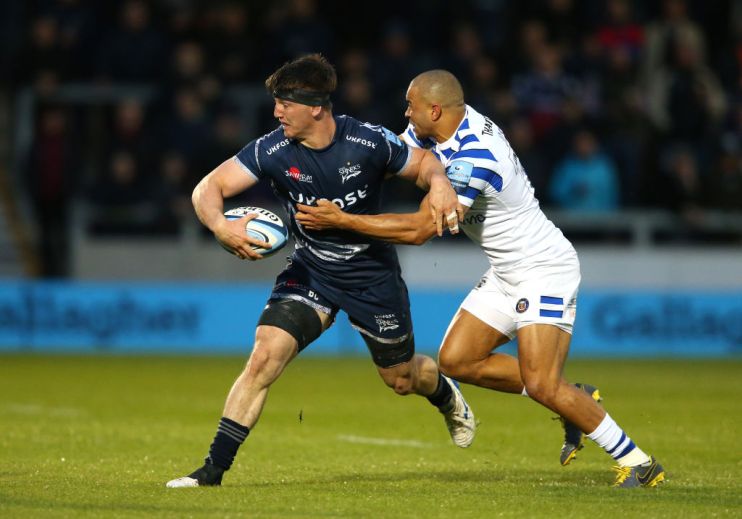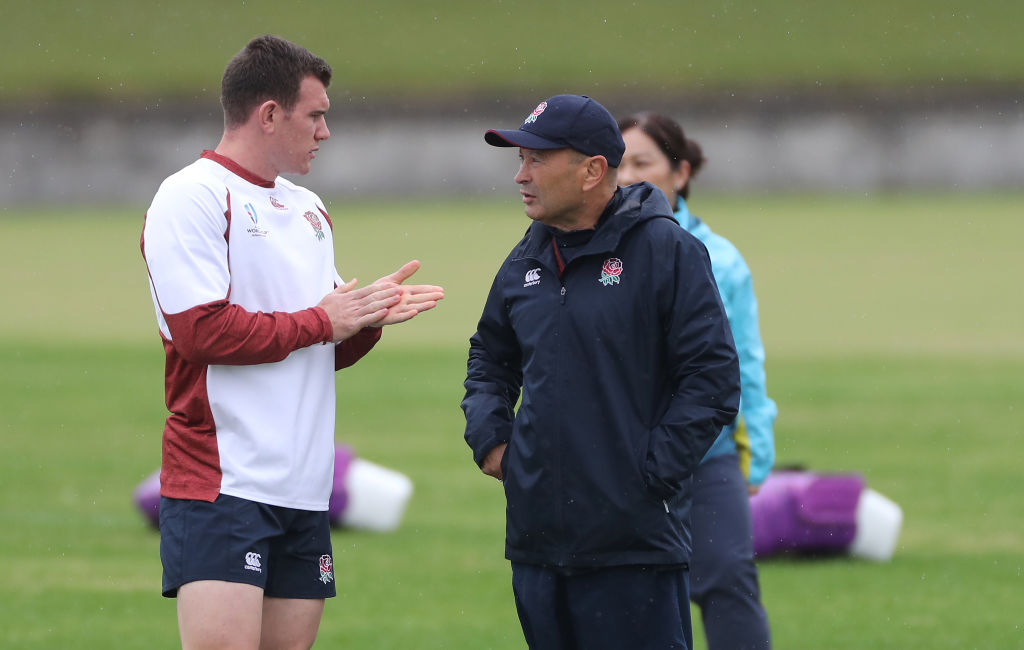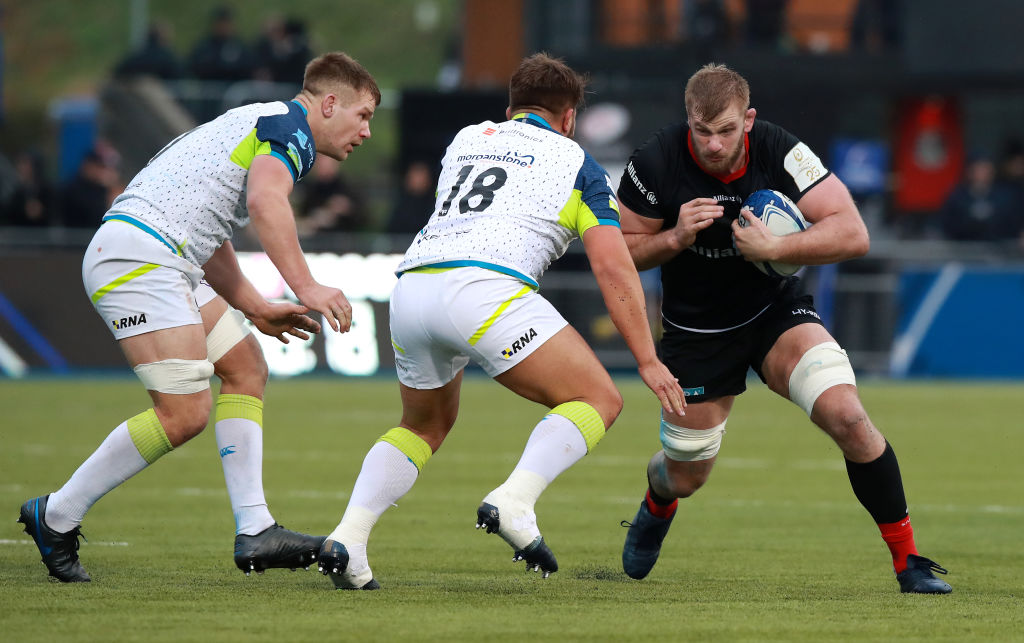The options facing Eddie Jones ahead of England’s Six Nations squad announcement

England’s opening Six Nations match next month is a difficult trip to Paris against a French side that has undergone a complete overhaul.
Their new head coach, Fabien Galthie, who was promoted from assistant following the World Cup, has left out a handful of experienced stars, including Yoann Huget, Maxime Medard and Camille Lopez, in favour of young and hungry personnel.
France’s initial 42-man squad includes 19 uncapped players. But it is unlikely that Eddie Jones, set to unveil his squad on Monday, will make such drastic changes, despite proclaiming that “this team is finished now” after last autumn’s Rugby World Cup final defeat.
Jones will no doubt go back through a match in which they failed to lay a glove on South Africa with his team, yet he is likely to pick many of the same 31 players from the tournament given the youth the squad possessed.
However, as with any new World Cup cycle, there are players who will not make it to France in 2023, and while England will not have to rebuild to the level of some countries, there are a few decisions for Jones to make ahead of his Six Nations squad announcement.
Scrum-half
Starting in the clearest position where change looks set to be forced, both Ben Youngs, 30, and Willi Heinz, 33, would appear to be too old to be England’s starting No9 in three years time.
Long-time first choice Youngs, whose displays have ranged from excellent to underwhelming during Jones’s reign, will surely be in the squad, but if Jones is to take England through to France – something the Rugby Football Union is still to confirm – then he will have to start thinking about the likely successors for such a crucial role in the team.
England do not boast a standout candidate of the calibre of South Africa’s Faf de Klerk or New Zealand’s Aaron Smith, but Saracens’ Ben Spencer is the most obvious choice to come in, along with Dan Robson of Wasps, both 27.
Elsewhere, Bristol’s Harry Randall and Northampton’s Henry Taylor would present more left-field and possibly long-term options, while Sale back row Ben Curry is said to be seen by Jones as a potential No9.

Props
In Kyle Sinckler and Manu Vunipola there is little cause to change the starting props, but Dan Cole, 30, and Joe Marler, 29, who played significant roles at the World Cup, may also be too old to stay the distance this cycle.
Cole struggled when replacing Sinckler after just three minutes of the final as the Springboks dominated the scrum. A long, illustrious international career should not be remembered for that alone, but it may be time for new blood to step up.
Marler, meanwhile, only returned from international retirement last summer and there remain questions about whether he can commit to playing for his country over the next four years.
Ellis Genge is still a great option for Jones at loosehead, while Exeter’s Harry Williams and Alec Hepburn are liked by Jones and could come in at tighthead. Bath’s Beno Obano and Will Stuart – now coached by ex-England scrum coach Neal Hatley – also deserve a mention.
Second row
Maro Itoje will remain one of the first names on the team sheet and went from strength to strength in 2019, commandeering George Kruis’s role as lineout caller.
With Kruis linked with a move to Japan at the end of this season amid speculation regarding Saracens’ efforts to stay within the salary cap, his reduced role with England and the fact he turns 30 next month, his international career may have reached its final innings.
Fellow lock Courtney Lawes is already 30, but has only seemed to improve with age. He has the potential to make France if given the chance and Jones is likely to abide. Alun Wyn Jones, 34, excelled at lock for Wales last year despite his age.
Wasps’ Joe Launchbury, 28, and Bath’s Elliott Stooke, 26, are both slightly younger and strong candidates to come in as cover, if not step up in the long term, while Alex Moon has impressed this season for Northampton and, at 23, could be one for the future.

Back three
Among the backs, England’s biggest concerns are injury-related. Bath trio Joe Cokanasiga, Ruaridh McConnochie and Anthony Watson have all had injury issues to varying extents, but would otherwise be expected to be included in the squad.
Watson has continued his fine form for Bath since returning from Japan but was forced off last weekend with injury in the Champions Cup dead rubber defeat to Harlequins.
Elliot Daly, Jack Nowell and Jonny May remain the standout choices to fill the back three in their absence.
Gloucester wing Ollie Thorley was selected for last year’s Six Nations and could be called on again, but his teammate, Louis Rees-Zammit, 18, has been summoned by Wales despite a reported approach from England.
Centres
With Manu Tuilagi and Henry Slade also nursing knocks, there is an opportunity to impress for Jonathan Joseph and Piers Francis, both of whom were in Japan.
Saracens’ Alex Lozowski has been in and out of the England squad and has the ability to fill in, although a lot will depend on whether Jones continues to deploy Owen Farrell at No12 with George Ford at fly-half or revert his captain back to No10.
Back row
As with much of the squad, there will not be wholesale changes due to the young nature of the team.
The trio of Billy Vunipola, Tom Curry and Sam Underhill were a highlight of England’s World Cup and will surely be a shoo-in again.
Northampton’s Lewis Ludlam, 24, continues to knock on the door, but Mark Wilson, 30, on loan at Sale from Newcastle, may struggle to hold onto his place, particularly given that he has not played since Japan due to injury.
Curry’s twin brother Ben is reportedly set for a call-up – and, says Sale boss Steve Diamond, is seen by Jones as a possible No9 – while Saracens’ Nick Isiekwe and Ben Earl have been exceptional for their club so far this season, as has Exeter’s Sam Simmonds, still only 25, giving England’s head coach plenty to think about.